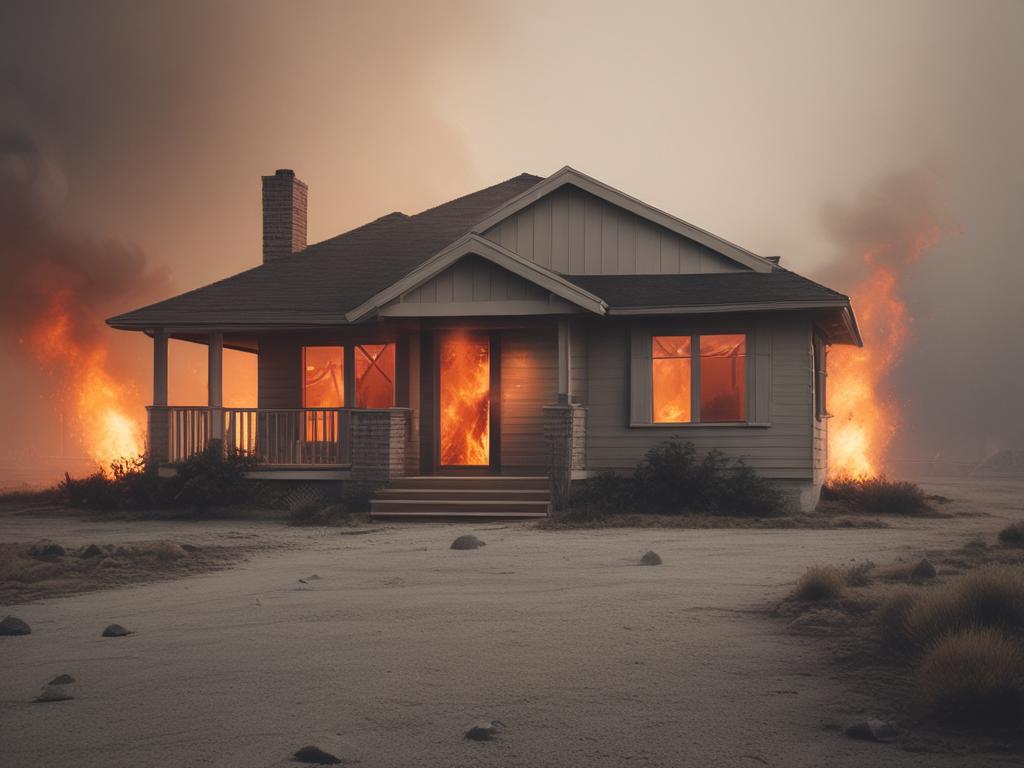
Experiencing a house fire can be one of the most traumatic events in a homeowner's life. The aftermath can leave you feeling overwhelmed, with a whirlwind of emotions and a list of what to do after a house fire seemingly stretching on for miles. It’s crucial to know the essential steps to take after a house fire, not only to ensure the safety of everyone involved but also to begin the recovery process effectively. Understanding how to handle fire damage claims can significantly impact the financial repercussions of the incident, making it important to stay informed and proactive.
Navigating the maze of fire damage insurance claims can be daunting, especially when you're grappling with the emotional toll of a recent fire. This blog post aims to provide clear guidance on maximizing your fire insurance payouts, finding help with house fire insurance claims, and uncovering solutions if your fire insurance claim was denied. Whether you’re looking for public adjusters for fire damage claims or simply need advice on how to proceed, we’re here to help you regain control and rebuild your life after a devastating loss.
Essential steps to take after a house fire
Experiencing a house fire can be traumatizing, but knowing the essential steps to take afterward can help you regain control. First and foremost, ensure that everyone is safe. If anyone has sustained injuries, seek medical attention immediately. Once safety is confirmed, contact your local fire department to assess any structural damage. They can provide you with insights into whether your home is safe to re-enter. It’s crucial to document everything, including taking photographs of the damage, which could be vital for your fire damage insurance claim.
Next, notify your insurance company about the incident as soon as possible. They will guide you through the process of filing a fire damage insurance claim. In the meantime, consider securing your property to prevent further damage, such as boarding up windows or covering holes in the roof. If you have valuable items that survived the fire, make sure to store them safely. Keeping a detailed record of the damage and any expenses incurred during this period will help you maximize your insurance payout and streamline future communications with your insurer.
Navigating fire damage insurance claims: tips and solutions
Dealing with fire damage is a traumatic experience, but effectively navigating your insurance claim can alleviate some stress. Start by documenting every aspect of the incident, including photographs of the damage, lists of personal property affected, and any receipts from repairs or temporary living arrangements. This thorough documentation not only strengthens your case but also helps you communicate your needs clearly with your insurance adjuster. When filing your claim, consider working with a public adjuster for fire damage claims, as they possess the expertise to negotiate on your behalf and ensure you receive the compensation you deserve.
If you encounter challenges, such as your fire insurance claim being denied or insurance cutting you short after a house fire, don't lose hope. It's crucial to understand your policy thoroughly, as it outlines your rights and the steps to take when faced with a denial. Engaging an experienced public adjuster can provide invaluable insights and help you develop strategies to appeal a denied claim. They can assist you in crafting an appeal, renegotiating with your insurance company, and maximizing fire insurance payouts. Remember, you are not alone in this process; seeking professional help can make a significant difference in securing fair compensation for your loss.
What to do if your fire insurance claim is denied
Experiencing a house fire is devastating, and finding out that your fire insurance claim has been denied can add to the emotional turmoil. The first step is to understand the reasons behind the denial. Insurance companies may deny claims for various reasons, including lack of coverage, failure to comply with policy conditions, or insufficient documentation. Carefully review your insurance policy to pinpoint any potential issues. If you believe the denial was unjust, gather all relevant documents, such as photos of the damage, repair estimates, and any correspondence with your insurer to build your case.
Once you've identified the reasons for the denial, you can take action to appeal the decision. Contact your insurance company and request a detailed explanation in writing. Use this information to address their concerns systematically. If you find it challenging to navigate the appeals process or if your claim involves substantial damages, consider hiring a public adjuster. Public adjusters specialize in handling fire damage claims and can help maximize your insurance payout. They work on your behalf to negotiate with the insurance company and ensure you receive fair treatment throughout the claims process.